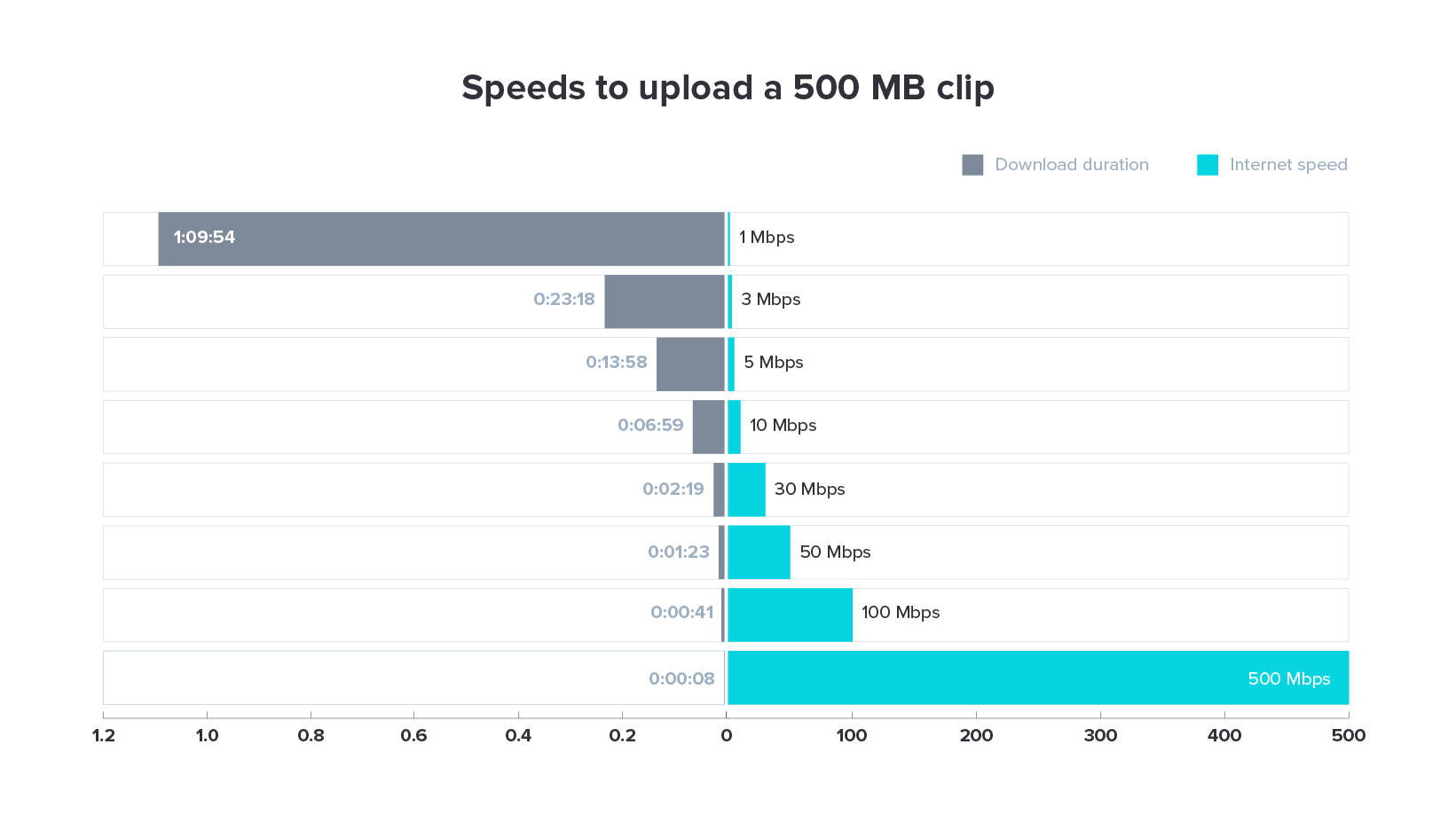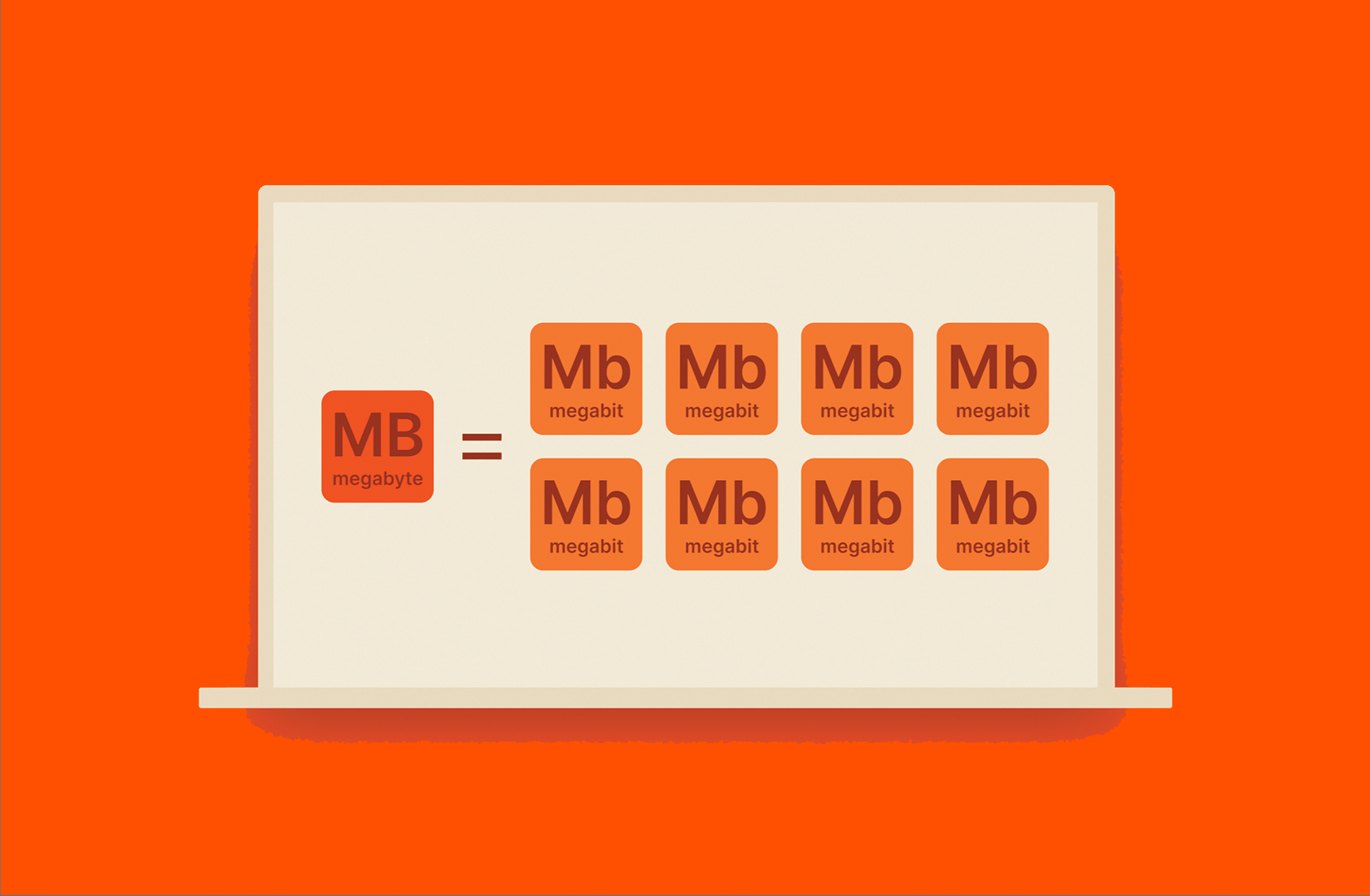Demystifying Megabits Per Second: A Guide to Choosing the Right Internet Plan
Comprehending the idea of megabits per second (Mbps) is crucial when selecting a web plan that lines up with your certain needs. With the multitude of plans available, just how do you determine which one is ideal for you?
Comprehending Megabits Per Second

To grasp the relevance of Mbps, it's essential to identify that it reflects the optimum bandwidth readily available for information transfer. As an example, a plan providing 100 Mbps enables the synchronised transmission of information at that price, though actual speeds may vary because of network blockage, range from the solution company, and the performance of your home network equipment.
Furthermore, comprehending the difference between megabits and megabytes is important. While megabits signify the speed of data transfer, megabytes (1 byte = 8 bits) measure the size of documents. Downloading and install a 100 MB file on a 100 Mbps link in theory takes concerning 8 seconds, barring any kind of disruptions.
Ultimately, picking an ideal Mbps score based on your family's internet use is important for guaranteeing an adequate online experience.
Exactly How Internet Speed Influences Activities
Internet rate plays an important function in determining exactly how properly people can engage in various online activities. Fundamental tasks like surfing internet sites or checking emails typically require lower speeds, typically around 1-5 Mbps. Megabits Per Second.
On the internet pc gaming, another prominent task, additionally depends greatly on internet rate. A steady connection of at the very least 15-25 Mbps can minimize and supply a competitive edge latency, which is necessary for real-time communications. At the same time, video clip conferencing applications, significantly essential for remote job, take advantage of speeds of at the very least 3-8 Mbps for clear audio and video clip top quality.
In families with several users, simultaneous tasks can strain bandwidth. In such instances, greater speeds-- 50 Mbps or more-- are suggested to fit diverse needs without a decrease in performance. Thus, recognizing the connection between internet speed and specific online tasks is vital for choosing an ideal plan that meets specific or household requirements successfully.
Different Kinds Of Internet Plans
Selecting an ideal internet plan requires an understanding of the numerous choices available in the marketplace. Internet solution companies (ISPs) commonly use several kinds of plans, each satisfying various user demands and preferences.
Broadband strategies are the most typical, providing high-speed internet using cable television or DSL links. These plans are ideal for households that participate in numerous online activities at the same time, such as video, streaming, and video gaming conferencing - Megabits Per Second. Fiber-optic plans, while much less extensively available, use the fastest rates and the best performance, making them excellent for tech-savvy users or those with substantial transmission capacity requirements
Fixed cordless and satellite strategies offer areas where conventional wired connections are inaccessible or unstable. While they can be useful for country customers, they frequently include higher latency and reduced rates contrasted to broadband alternatives.
Mobile hotspot intends permit users to access the internet through cellular networks, providing visit this site versatility for those who need internet on the go. Finally, some ISPs use tiered strategies with differing information and speeds caps, allowing clients to select a plan that lines up with their usage patterns and budget. Understanding these various kinds of internet plans is important in making a notified decision.
Determining Your Rate Demands
Often evaluating your speed requires is necessary for selecting an internet plan that fits your lifestyle. Recognizing the demands of your household or service can assist in choosing a suitable plan. Begin by examining the number of gadgets that will be attached all at once. Each gadget eats transmission capacity, and high usage can bring about slow down efficiency.
Next, think about the tasks you engage in online. Standard jobs such as searching and emailing commonly require reduced rates, around 1-5 Mbps. However, streaming video clips in high interpretation, online video gaming, or huge file downloads may demand rates upwards of 25 Mbps or more.
In addition, take into consideration the number of individuals. Megabits Per Second. A family with numerous people streaming content or video gaming at the same time will need dramatically more bandwidth than a single-user situation
Finally, bear in mind that internet rates can be influenced by variables such as network congestion and the quality of your router. By thoroughly evaluating your speed needs, you can make a notified decision, making sure that your internet plan lines up with your daily usage and future demands.
Tips for Selecting the Right Plan
Choosing the best internet plan requires careful consideration of several key factors to guarantee it meets your demands. Analyze your use patterns-- whether you are streaming, video gaming, or working from home-- since these activities demand different data transfer levels. Typically, homes with high-bandwidth tasks or several users will certainly take advantage of higher-speed plans.
Next, check out the data caps associated with numerous strategies. Some providers enforce limitations on data use, which might result in added fees or throttled rates upon surpassing those limits. Picking an unrestricted data plan may be advantageous for hefty users.
In addition, think about the reliability of the provider. Study client reviews and ask about the copyright's uptime and client service performance. A less expensive plan may not be an excellent deal if it does not have reliability or assistance.
Lastly, examine promotional offers and agreement terms. While introductory costs can be enticing, be conscious of the lasting costs and whether the plan needs an extensive contract. By evaluating these factors, you can make an educated choice that straightens with your internet requirements and visit here spending plan, ensuring you choose one of the most appropriate prepare for your household.

Final Thought
In verdict, comprehending megabits per second (Mbps) is important for selecting a proper internet plan. Inevitably, selecting a strategy with adequate data transfer ensures fulfillment and performance in navigating the electronic landscape.
Understanding the idea of megabits per second (Mbps) is essential when picking an internet plan you can try these out that straightens with your specific requirements. Hence, understanding the connection in between internet speed and particular online tasks is critical for selecting a proper plan that meets private or household needs efficiently.
Mobile hotspot prepares enable customers to access the internet via cellular networks, offering versatility for those that call for internet on the go. Some ISPs offer tiered plans with varying information and rates caps, making it possible for customers to choose a plan that lines up with their usage patterns and budget plan.Regularly analyzing your rate requires is essential for choosing an internet plan that fits your way of life.
Comments on “How to Choose the Right Internet Plan Based on Megabits Per Second”